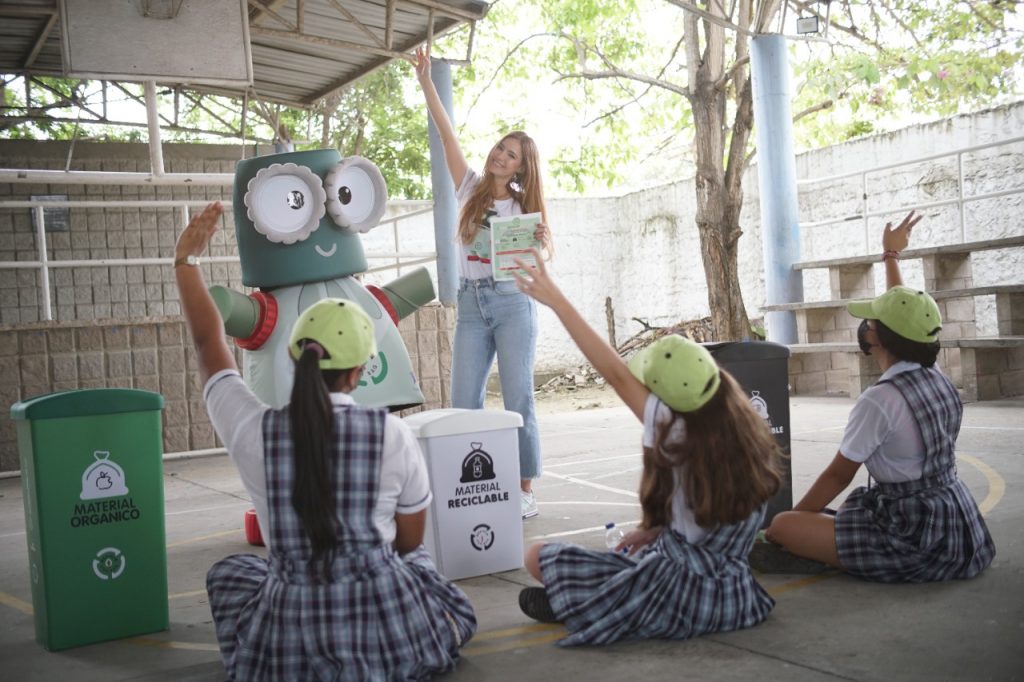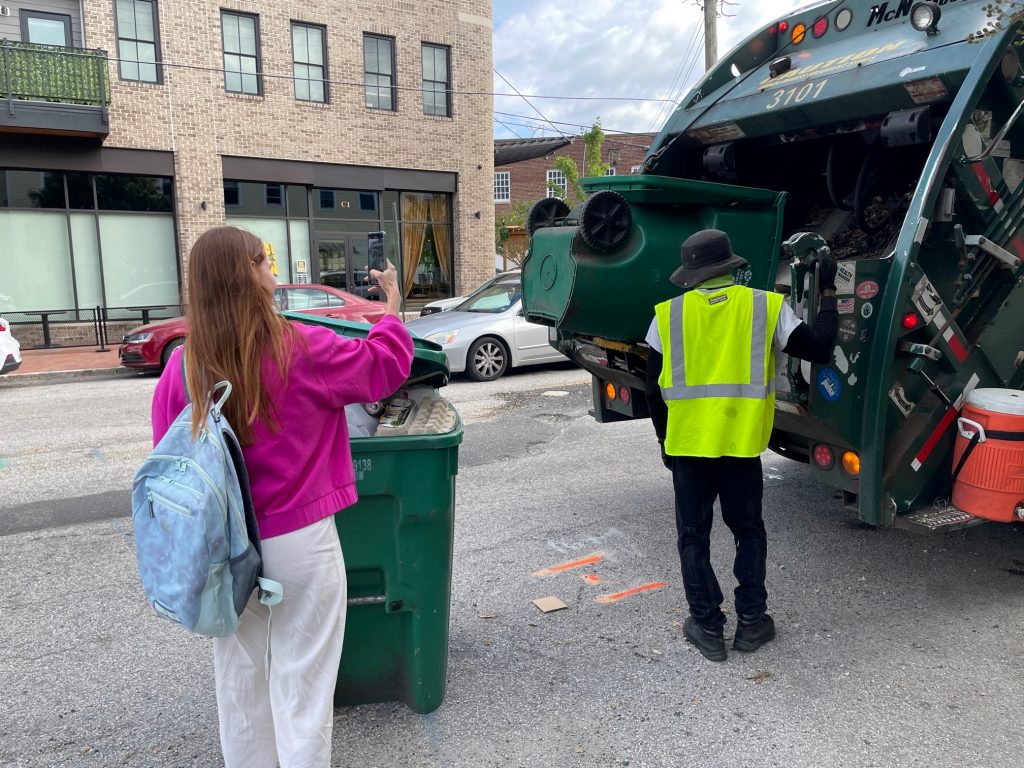Cross-Cultural Connection: Recycling in Barranquilla, Colombia
September 20, 2023 |

Silvana Puello speaks to school children in Barranquilla, Colombia, as part of the city’s “Recicla por Baq” program.
We say it often: No two recycling programs are the same. For example, material accepted in CVWMA’s recycling program might not be accepted in programs in Northern Virginia or Hampton Roads.
Recently, I had the opportunity to learn how recycling works a little farther afield — in Barranquilla, Colombia.
This came about thanks to Barranquilla resident Silvana Puello. Silvana helped develop her city’s recycling program — Recicla por Baq — and was interested in learning about ours.
She messaged CVWMA on Instagram hoping to connect in person.
Likewise, I was interested to learn about recycling in Barranquilla. Silvana and I arranged a Blue Thursday meetup at Sub Rosa Bakery in Church Hill. This would allow her to get a closeup look at CVWMA recycling collection.

Silvana captures video of a worker collecting recycling in Church Hill.
Some of what I learned:
- Barranquilla is home to 1.2 million people, which is the same population as CVWMA’s service area.
- The city is located at the delta of the Magdelena River, the largest river ecosystem in the Andes.
- Recicla por Baq is the city’s recycling initiative.
- Erre is the Recicla por Baq mascot. Erre visits schools to educate children about recycling, just like CVWMA’s R3.
- Recycling in Barranquilla is collected not by public or private workers but by “los recicladores,” or independent waste-pickers. They make a modest living selling what they find to recycling companies.
- Recicladores walk door to door, pulling recyclables out of household trash. Residents typically do not separate recyclables.
- There are an estimated 3,400 recicladores in Barranquilla.
- Through Recicla por Baq, local government is working to educate all residents on the practice of sorting recyclables from trash. This would not only reduce contamination. It would also dignify the work of recicladores and help raise their standard of living.
“In Colombia recycling is a double challenge, since it is not only important to overcome climate change, but is also a source of workforce for recicladores, who usually lack education or are migrants with minimum job opportunities,” Silvana said. “That’s why as a society we have the responsibility to separate our waste not only to help preserve the environment, but to provide to the recicladores a more dignifying way to execute their important job.”
I’m grateful for the opportunity to meet Silvana. She’s had a big impact on her city, and I look forward to learning more from her.
We plan to keep in touch so we can continue our cross-cultural connection.
Julie Buchanan is the public relations coordinator for CVWMA.
Tags: recicla por baqCategory: News
